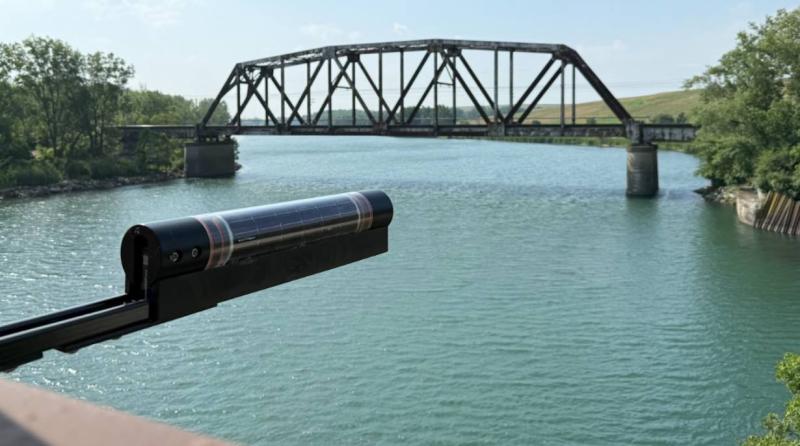- Verizon deployed flood sensors from startup HyFi in Chicago
- Other U.S. cities are on its list
- The sensors are installed above water and use acoustic pulses to measure the water level and detect flooding
Deadly and damaging floods have become a worryingly regular part of American life. From the Guadalupe River disaster in Texas on the 4th of July that claimed 134 lives to the Milwaukee floods that started on August 9th and caused extensive household damage, submerged vehicles and the early closure of the Wisconsin State Fair.
Operators like Verizon and T-Mobile are starting to move ahead with installing flood sensors in cities in Verizon’s case, and deploying AI-powered threat detection tools for T-Mobile. AT&T didn’t reply by press time for this article but certainly were on the scene with network-related disaster-recovery vehicles — and more — in the case of the Texas floods.
Verizon flood sensors
Verizon has deployed flood sensors from startup HyFi in New Orleans and Chicago. The Chicago deployment included 50 sensors installed above water. They use acoustic pulses to measure the water level and detect flooding.

“They are scheduled to be deployed in Detroit with future locations to be determined," a Verizon spokesperson told Fierce.
City managers and first responders can use phone and desktop apps to check field conditions or visualize past storm events. The HyFi sensors are also used by directors in the city of Dearborn, Mich., Toledo, Ohio, and other towns, cities and counties.
T-Mobile leverages AI
T-Mobile also told Fierce that it is preparing for flood emergencies. “We leverage AI-powered threat detection tools that monitor data from a wide variety of sources – including severe weather changes and regional instability – in real time to identify emerging threats,” a T-Mobile spokesperson told Fierce.
“This technology, integrated into our Emergency Operations Centers via Everbridge, gives our teams immediate visibility to assess risks, enabling faster decision-making, improved responsiveness, and stronger resilience for the communities we serve,” the spokesperson added.
T-Mobile has also worked on water detection systems. The operator is working with Fluid Conservation Systems (FCS) to build cellular connectivity into that company’s acoustic monitoring systems for leak detection.
The analyst take
Daryl Schoolar, analyst at Recon Analytics, thinks that AT&T and T-Mobile will probably deploy flood sensors over time, following Verizon. “Based on AT&T and T-Mobile’s past work supporting disaster recovery and first responders, I think it is only natural they would also support the deployment of flood sensors,” the analyst said.